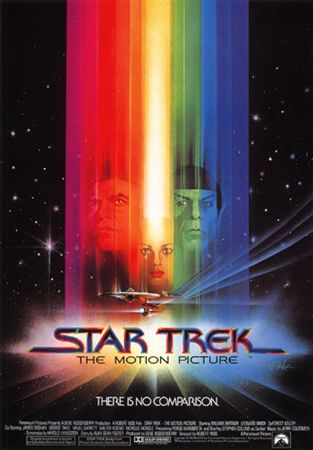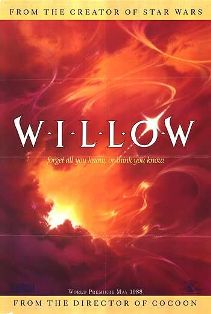
Welcome to the next CHUD List.
We’ve
tackled our essentials list and the continued revelation of our Kills
List from 2003, and now that we’ve begun the beguine, we must continue.
Behold:
The CHUD.com Top 50 Disappointments.
A
quick word on the criteria. We could very easily have spent this whole
article discussing sequels and prequels and adaptations of television
shows and called it a day. Instead, we tried to go a different route.
Also, from a master list of over 100, the involved parties (Devin,
Jeremy, Micah, Russ, and myself) all killed off a choice for each one
we claimed. As a result, we’ll run a big list at the end of this of the
‘ones that got away’. So, here is day one of many where we chronicle
the 50 Biggest Disappointments. Two a day, every week day for five
weeks. In no particular order: #44 – Star Trek: The Motion Picture (1979. dir. Robert Wise)
#44 – Star Trek: The Motion Picture (1979. dir. Robert Wise)
Fans of Joss Whedon’s Firefly take a certain pride in their role in resurrecting a failed TV show and turning it into a mediocre movie. But they were far from the first fans to see their cancelled obsession become a movie – that honor goes to Star Trek. And not only were they not the first, their film, Serenity, doesn’t even hold a candle to the sheer lumbering disappointment of Star Trek: The Motion Picture.
The Star Trek movie should have been good. It got going after a lot of development had been done on a new Star Trek series, called Star Trek: Phase II, so there were a number of concepts and storylines that were fully fleshed out from which to choose. Paramount funneled immense amounts of cash into the project (to date the most expensive Star Trek film, when adjusted for inflation), which became a movie after Star Wars and Close Encounters of the Third Kind proved there was an audience for big sci-fi on the screen. And the director, Robert Wise, was no chump. While he wasn’t the kind of helmer whose style carried over from film to film (he was sort of the anti-auteur theory in action), Wise had won a couple of Academy Awards and had directed some bona fide classics, including West Side Story and The Day the Earth Stood Still. Hell, he had been the editor on Citizen Kane! Unlike every other Star Trek to come, this was a classy movie, one that you have to assume Paramount considered something of a prestige picture.
It’s that leaning towards a prestige picture that makes Star Trek: The Motion Picture almost unbearable. The movie plods along, unaware that Gene Roddenberry’s creation was no 2001: A Space Odyssey, no matter how many long, boring psychedelic wormhole sequences they share in common. The whole affair is weirdly airless, having almost no resemblance to the pulpy insanity of some of the best episodes of the original series and presaging the Prozac-ian dullness of The Next Generation. And the only characters who have anything happen to them are new characters introduced here, never given any likable characteristics, and then zapped off into another plane of being. On top of that, the whole damn movie is a retread of an episode of the original series, The Changeling, in which a deep space probe from hundreds of years before that went off the reservation, achieved consciousness and began blowing shit up. They managed to pull that off in 45 minutes while Star Trek: The Motion Picture takes two hours and ten minutes to do the same thing, while being half as interesting.
When I was a kid I dragged my father to see Star Trek: The Motion Picture with me, and the film melted during the third act. I couldn’t bring myself to care and we left the theater rather than wait for the reel to be replaced. It would be years before I would subject myself to the film again to see it all the way through. – Devin
Travesty Scale (1-10): 5 out of 10
 #43 – Willow (1988. dir. Ron Howard)
#43 – Willow (1988. dir. Ron Howard)
During the Holiday ’87 movie season, audiences began seeing an enticingly vague teaser trailer promising a cinematic experience like none other. And it began with a credit that, back then, meant everything: "A Lucasfilm Ltd. Production".
This was the pre-internet era, so, if it wasn’t covered in Starlog or Bantha Tracks, we flat-out didn’t know anything. And, to the best of my recollection, Willow was a pretty well-kept secret – which is why, when that teaser began, there was a collective "Oh, shit! Is this it!?!?" gasp from every geek in the theater.
It wasn’t. But what the teaser did audaciously promise – over foreboding crimson clouds, portentous synth noodling and tantalizing glimpses of context-free imagery – was the most original… something in movie history. To wit (as deliberately elocuted by The Voice of God):
"You know what is real, and what is not. You know what is light, and what is dark. You know what is good, and what is evil. Now, forget all you know… or think you know."
Then the kicker:
"From the creator of Star Wars and the director of Cocoon… Willow."
We already knew it was a Lucas production, but "from the creator of Star Wars"? That’s a called shot. That’s saying, "This summer, you’re getting the goods."
Five months later, we got a bill of goods.
Look, Willow isn’t a bad movie. As Star Wars (or "The Hero’s Journey") transposed to Middle Earth with elements of The Bible, Snow White and a whole slew of other fantastic works shoehorned into the mix, it’s far more enjoyable than what Lucas would cobble together in the name of Star Wars a decade later (even though you could consider Willow a harbinger of much grander misfires to come). Warwick Davis is a sympathetic protagonist, Val Kilmer is a suitably dashing scoundrel and the ILM special effects are, for its time, pretty spectacular. It also benefits from an epic sweep that, to date, cannot be replicated in a virtual environment (he says as he anxiously awaits Zemeckis’s Beowulf). And who doesn’t love that James Horner score?
But it took a long time for a lot of folks to accept Willow for what it modestly was rather than detest it for what it immodestly claimed to be. That’s why the film was a major financial disappointment for MGM (which, as seemingly always, was in dire need of a hit) and a complete miss for mainstream moviegoers (who, one week later, turned out in far greater numbers to see Crocodile Dundee II). – Jeremy
Travesty Scale (1-10): 6 out of 10
Previously Disappointing:
The Ladykillers
Once Upon a Time in Mexico
New York, New York
Billy Bathgate